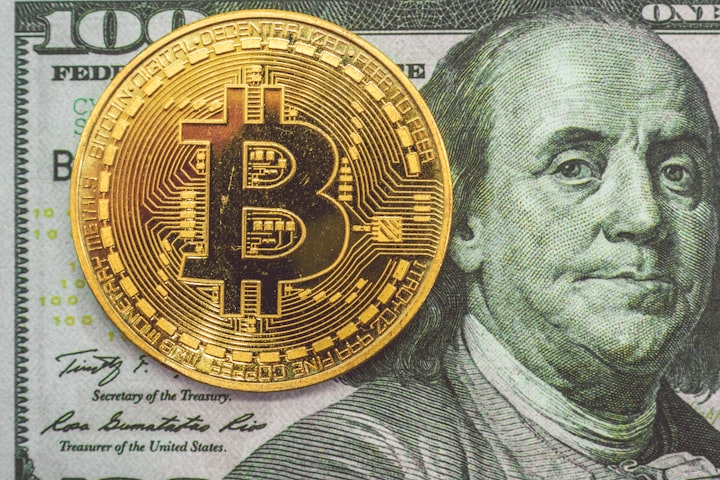A US Dollar crisis ?
How long will it last........


We have entered a period the likes of which we have never seen before. The collapse of the dollar and dollar assets is growing increasingly certain by the day. The money-printing of the dollar designed to inflate assets will end up destroying the dollar.
Admittedly, the British had their South Sea bubble at about the same time, but it was the Mississippi bubble which proved that if you print money to puff up asset prices, you end up destroying the currency when the bubble bursts. The Bank of England didn’t make that mistake, but today led by the Fed that is precisely what most central banks are doing.
And then there’s the European Union and its Eurozone.

There can be little doubt that when this systemic corruption is exposed, the ECB and the euro will be finished. Timescale? Who knows — but it could be any day. Just one day. Any time from now, most likely at the same time as the dollar collapses because both events will likely be driven by higher interest rates. And those who are unprepared for it will lose everything.
The speed at which rigged markets unravel can be extremely rapid. Many of us will remember the end of the Berlin Wall.
The equivalent today is when ordinary people no longer accept suppressed markets. It could be triggered by foreigners, suddenly realising they are badly exposed. It could be Europeans, suddenly deciding to take their money out of the banks in somewhere not that significant, such as Greece.
The dollar and the euro share a dangerous characteristic. The Fed and the ECB are printing dollars and euros respectively in massive quantities to finance government deficits which have spiralled out of control. To facilitate this inflationary financing, they have suppressed interest rates and mispriced government debt. Only one thing can happen. Interest rates, which reflect the time preference of money, must rise to compensate holders and users of money for loss of purchasing power. Governments cannot suppress markets for ever.

This danger is gradually dawning on the masses. Commodity prices are now rising while tranches of money are being helicoptered into every adult American’s bank account. They will spend much of it when there are not enough goods to match the demand.
Ephemera such as bitcoin and ether have rocketed in price, surely reflecting the debasement of the dollar and other fiat currencies, to the extent that even the financially illiterate now know why they are rising. Small investors, acting as if they are the new professionals, are taking on the new patsies — hedge fund managers who still think they are masters of the Universe. The reversal of roles is nothing short of astonishing, nor is there any sign of ending.
History tells us that when governments lose control of their money, that markets, being the collective expression of human activity, return to sound money chosen by the people as their medium of exchange.
Interest rates are bound to rise, reflecting a fall in fiat currencies’ purchasing power
They point out that the higher the interest rate on fiat currencies, or on investments such as government bonds, the greater the opportunity cost of owning physical metal — which they say pays no interest.
The interest rate obtained is determined by the same factors, but the originary rate, that is to say the rate shorn of lending risk factors, is different. This refers to time-preference, the preference of immediate ownership to possession at a future point in time. Since the comparison is between actual possession and the promise of possession in the future, the future value of any form of money is naturally valued at a discount to its current value, and conventionally this is reflected in its originary interest rate.

If a central bank issues additional fiat, a rational holder will assume its purchasing power in future will be less than that of the present. The element of time preference in favour of current possession will increase, reflected in the expectation of a lower future value for the currency, and therefore a higher originary rate of interest to compensate. In a free market, this element of interest rates is marginally set between lenders and borrowers. Similarly, a rate of time preference for gold is decided in free markets.
Now let us assume that a central bank embarks on a policy of inflating its fiat currency by a considerable quantity. We can see that this will radically affect perceptions of future purchasing power, leading to materially higher interest rates. But that is resisted by the central bank, which increases its intervention in financial markets to ensure that interest rates remain suppressed. Part of that suppression is to claim that monetary policies will not lead to rising prices. In other words, to a loss of the currency’s purchasing power.
The suppression of the evidence of the consequences of monetary inflation for the purchasing power of currencies describes the current situation, not just for the dollar, but for all other fiat currencies to varying degrees. Now that monetary inflation has been accelerated to new levels, interest rate suppression cannot continue for much longer, because without the recognition of time preference a fiat currency becomes rejected in favour of goods and commodities, which can be expected to retain their value better than the currency.
About the Creator
Muhammed Yaseen
London
Graduated banking and finance.
Like to read and keep updated with politics and finance.
Expert in finance
https://www.linkedin.com/mwlite/in/muhammed-yaseen-b1411598






Comments
There are no comments for this story
Be the first to respond and start the conversation.